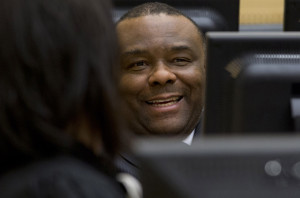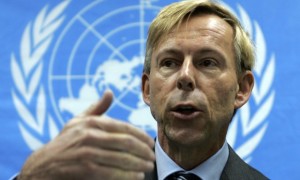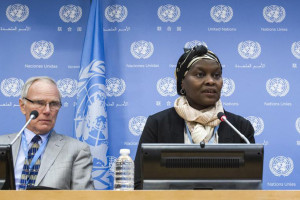
- Jean-Pierre Bemba during his ICC trial in 2013 © Reuters
The International Criminal Court (ICC) recently heard closing speeches in the case against former vice-president of the DRC, Jean-Pierre Bemba.
Bemba is charged with command responsibility for war crimes and crimes against humanity allegedly committed by troops from the Movement for the Liberation of the Congo (MLC) when they went into the Central African Republic in 2003 to assist then-President Patassé with quashing a rebellion.
The Prosecution allege that the MLC troops were under Bemba’s effective command and control, that he knew or ought to have known that they were committing crimes, and that he failed to take steps to prevent the crimes or punish the soldiers.
Sexual violence has been a prominent part of the case against Bemba. Then-Prosecutor Luis Moreno-Ocampo said in his opening speech that:
“Women were raped systematically to assert dominance and to shatter resistance; men were raped in public to destroy their authority, their capacity to lead.”
According to the Prosecution, Bemba’s troops systematically raped, pillaged and murdered civilians in the CAR and committed hundreds of sexual assaults within a few days.
Defence counsel for Bemba, Peter Haynes QC, demanded Bemba’s acquittal contending that he did not receive information that crimes were being committed; that the troops fought under the command of CAR’s national armed forces and not Bemba; and that he tried to prevent the crimes.
iLawyer Guénaël Mettraux considers the judgment, which is due in 2015, to be a potential benchmark ruling, setting the standards by which political or military leaders will be held responsible for crimes committed by their subordinates:
“The decision might have relevance around the world because the ICC could very well set a precedent for other situations.”
Whilst sexual violence has been charged in other cases before the ICC, most famously in Lubanga and Katanga and Ngudjolo, all three defendants were acquitted on these counts.
The CAR continues to experience ongoing conflict and some observers are sceptical about the effect that the ICC judgment could have in the region. Patrick Vinck, researcher at the Harvard Humanitarian Institute warns that the trial, which took place 10 years after the atrocities, is not only a failure of the ICC but a failure of the international community to help the CAR achieve peace.




